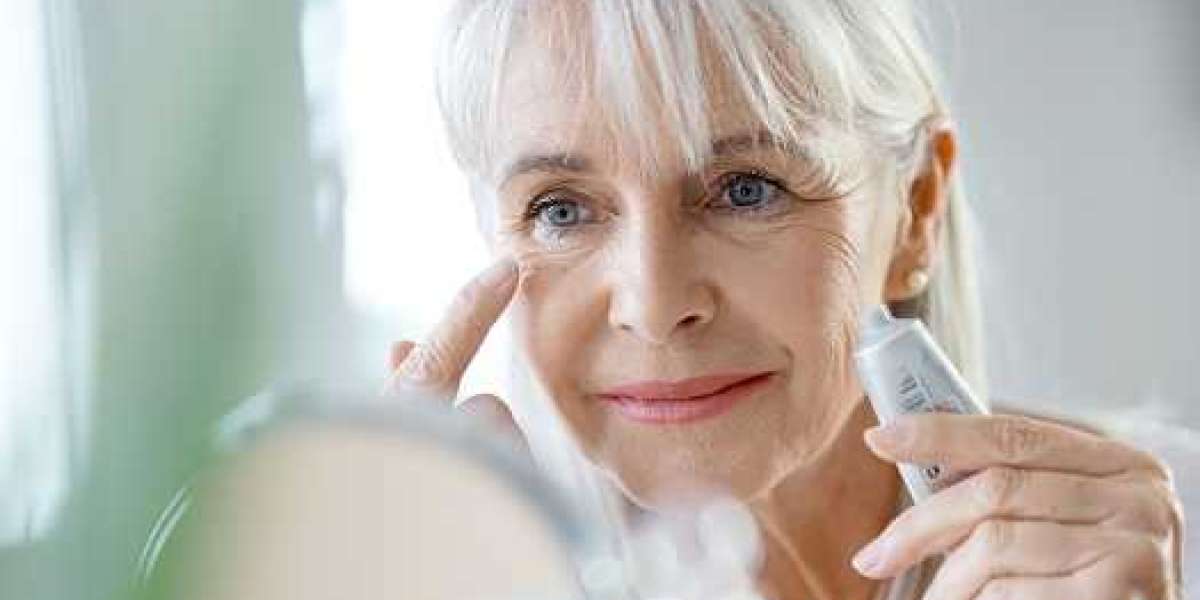Skin can become dry and irritated as we age into our 60s and 70s. One of the factors contributing to this is that skin is thinner and loses water more readily than normal. Medicines and medical conditions can also play a role in the development of this condition.
There is good news to report. The right skincare can make a significant difference in how your skin feels and looks.
Skin becomes drier as we grow older.
If your skin is feeling dry and irritated, using the proper skincare products can help you feel more at ease.
Dermatologists recommend that you make some changes to your skincare routine.
The following lifestyle changes, if you haven't already done so, are recommended by dermatologists when it comes to skincare in our 60s and 70s.
Bathe your skin to relieve it of its dryness. Simple adjustments to your bathing routine can help to reduce (or alleviate) dry, itchy skin and prevent dry, itchy skin from developing into a more serious issue. What you can do is as follows:
Gently wash your hands with a bar of moisturizing bar soap, cleanser, or body wash that is free of fragrance. Instead of drying out your skin, doing so will help to soothe it. Glycerin, hyaluronic acid, and lanolin are examples of moisturizing ingredients that can aid in the reduction of dryness.
Warm (not hot) water should be used. Hot water depletes the skin of its natural oils, which can exacerbate the condition of dry skin.
Wash your skin with a soft cloth afterward. The use of a buff puff or bath brush can cause irritation to your skin.
Take a short bath or shower to avoid overheating. It's possible that you won't need to bathe every day after all. When you're bathing, keep it brief. Take a bath or a shower for 5 to 10 minutes.
After bathing, gently pat water away from your skin, but leave a small amount of water on your skin. Having a small amount of water on your skin when you apply moisturizer (the next step) will help to hydrate it.
In the first three minutes after bathing, and throughout the day, apply a creamy, fragrance-free moisturizer formulated specifically for dry skin. Moisturizing helps to alleviate dryness while also restoring your skin's protective barrier to normal. When your skin is extremely dry, dermatologists recommend using an ointment rather than a cream to moisturize it. In comparison to creams, ointments are more effective at retaining water in the skin's surface.
Leave the bath oil at home.
Using bath oil to moisturize your skin increases your risk of falling, so it's best to avoid using bath oil altogether if possible.
When the air feels dry, use a humidifier to help relieve the dryness. Heating and air conditioning can strip humidity from the air. Skin can become dry and itchy when exposed to dry air.
It is possible to reduce dry, itchy skin by keeping the indoor humidity between 45 percent and 60 percent. Using a hydrometer, which can be purchased at any hardware or home improvement store, it is simple to determine the relative humidity in the air.
What your skin can look like in your 60s and 70s
Even though everyone ages differently, you may notice the following changes in your skin during this stage of life:
Drier
Thinner and beginning to resemble paper in appearance
Itchy
Increasing the number of age spots, wrinkles, and creases
Blotchier
I'm easily irritated.
Skin infections are more likely to occur.
Bruising occurs more frequently.
Sweating less is good for you.
Healing occurs at a slower rate.
When doing household chores or gardening, gloves are recommended. Performing household and garden tasks can expose your skin to harsh chemicals, ultraviolet light, and other factors that can irritate and dry your skin.
In addition, by wearing gloves, you reduce the possibility of injuring your skin.
Sunscreen should be used to protect your skin. It's natural to be concerned if you're noticing more wrinkles, age spots, bruises, and blotches of discolored skin, and you may wonder if you should continue to use sunscreen.
Yes, you do! Even at this stage of your life, sun protection has a number of advantages. It aids in the prevention of new age spots as well as blotchy skin. It has the potential to improve dry, thinning skin. As a bonus, it lowers your chances of developing skin cancer.
Dermatologists recommend that you do the following to protect your skin from the sun's harmful rays:
When you're outside, seek out some shade. When possible, seek shelter from the sun, keeping in mind that the sun's rays are at their strongest between 10 a.m. and 2 p.m.
Protect your skin from the sun by dressing in light-colored clothing. When possible, dress in a lightweight, long-sleeved shirt and pants, as well as a wide-brimmed hat and sunglasses that provide UV protection. When shopping for clothing, look for clothing that has an ultraviolet protection factor (UPF) number on the label for more effective protection.
SPF 30 or higher is recommended for use with a broad-spectrum, water-resistant sunscreen. While you're outside, you'll want to apply this to any exposed skin that your clothing won't cover.
Don't use any fragrances. The fragrance has the potential to irritate your skin. It is important to avoid using perfumes, colognes, and skincare products that contain fragrance to aid in the healing of dry, itchy skin and the prevention of it from returning.
Products that are free of fragrance will have the words "fragrance-free" printed on the package.
The terms "fragrance-free" and "unscented" refer to two different things.
Unscented products, on the other hand, can irritate dry skin because unscented products generally contain a chemical that masks the smell of other ingredients so that you cannot detect them. Use only fragrance-free products, if possible.
Examine your skin for signs of skin cancer to ensure that you are not at risk. When you reach the age of 50, your chances of developing skin cancer and pre-cancerous growths increase significantly. As time goes on, the likelihood of this happening increases.
When skin cancer is detected and removed early, it is often the only treatment that is required. If cancer spreads, treatment will become more difficult to administer.
Discovering how to examine your skin for signs of skin cancer can assist you in detecting skin cancer in its earliest stages. You can watch How to perform a skin self-exam to learn more about how to examine your own skin.
It is important to schedule an appointment with a board-certified dermatologist if you notice a spot that is different from the others, changes, itches, or bleeds.
A dermatologist examines the skin of a patient to check for signs of skin cancer.
It is important to schedule an appointment with a board-certified dermatologist if you notice a spot that is different from the others, changes, itches, or bleeds.
When should you seek the advice of a dermatologist?
While the right skincare can make a difference, medications, surgery, and health issues can all have an adverse effect on your skin. A dermatologist who is board-certified understands the effects that each of these factors can have on your skin and can design a treatment plan that is specific to your skin's needs. A dermatologist can also assist you in treating skin changes such as age spots and wrinkles in a safe and effective manner.


